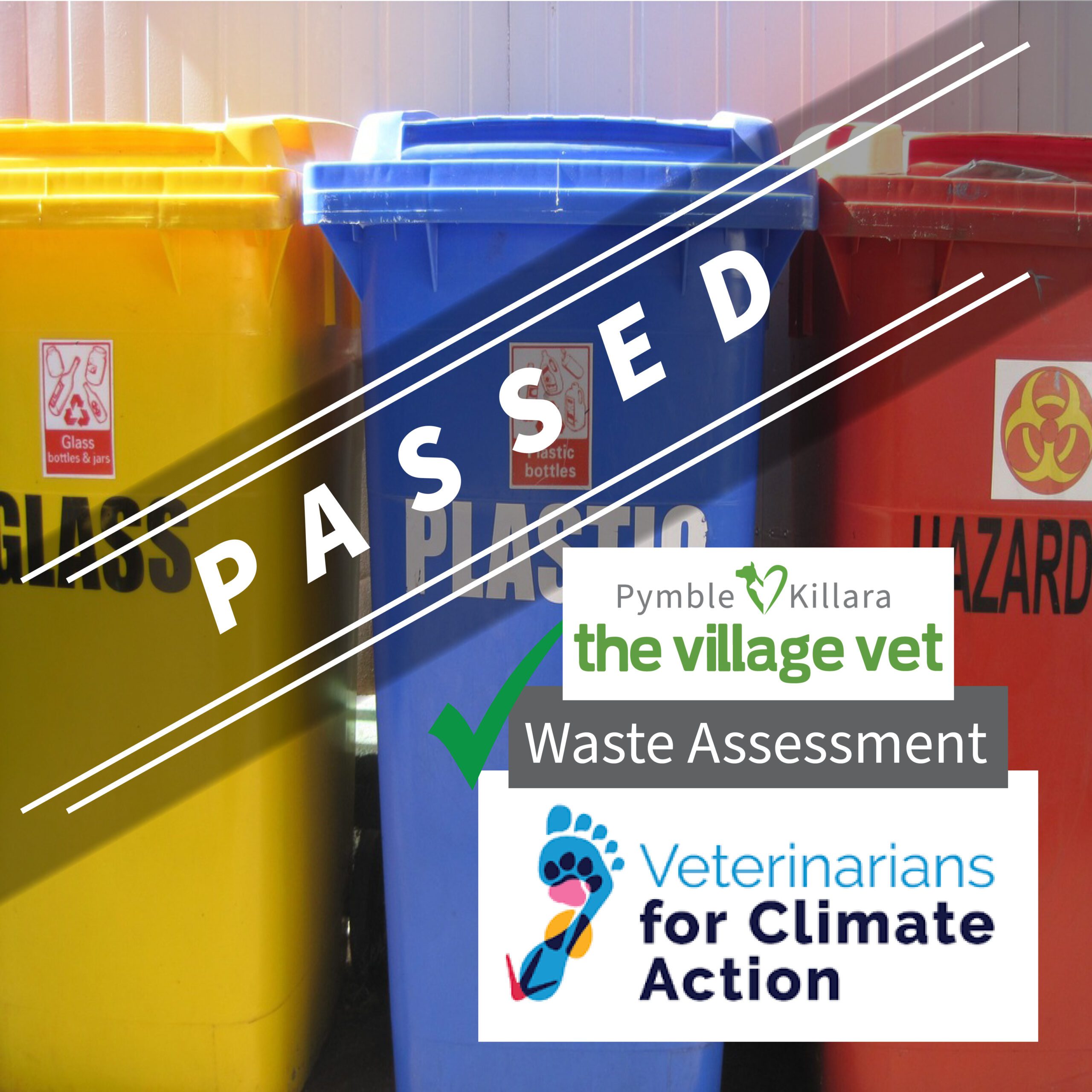By Alex Zarzycki, Veterinary Nurse and VfCA Champion, The Village Vet
Introduction
The Village Vet is following a program designed by Vets for Climate Change. Each module assesses an area of veterinary practice. Once assessed, changes are identified and to ensure each area of practice is creating a footprint that is as small as possible in today’s world.
Gina Shergill, veterinary nurse and VfCA Champion recently took The Village Vet through the Waste Management module and we had the green tick of approval from VfCA in February 2023. Alex Zarzycki explains how this process unfolded.
Methodology by Alex Zarzycki, Veterinary Nurse, The Village Vet
As part of the Vets for Climate Action (VfCA) program we are asked to evaluate how our practice can reduce our environmental impact in various areas. The ‘No Time to Waste’ module involved thinking about the different kinds of waste produced at a vet clinic, discussing our thoughts on recycling and landfill minimisation and conducting a quick survey on these topics. We also did a waste assessment to evaluate our impacts. The waste assessment involved looking at the different kinds of waste we have at the clinic (paper, recyclables, general waste, clinical waste) and seeing how much of each kind made up the waste we produced. It also included considering how bins were placed and how they were used – which were most full or empty at the end of the day, and what kind of rubbish was put in each bin.
Unsurprisingly, the consult room bins were the most used in the clinic. The bins were generally used correctly – sometimes bottles or cans were put in the paper bin or paper in the mixed recyclables bin. This was a good start from our team in terms of everyday recycling.
The team was supportive of the efforts to be more sustainable, and the changes are positively received. Some changes included additional colour coded recycling and paper bins at both clinics and new signage to identify what can be recycled. The new signs and improved placement of recycling bins means that it’s easier to consider where waste is going and easily brings awareness to what can possibly be reused. It also means that recyclable waste isn’t spoiled by other rubbish.
Alongside introducing online forms for clients to use to save on paper, we are trying to print double sided where possible and use recycled paper.
We introduced soft plastics recycling which was helpful for reducing waste that comes with consumables – such as syringes and needles – as well as packaging from our deliveries. Unfortunately due to the suspension of the Redcycle program we aren’t able to continue doing this. It’s a little disappointing but we are still able to recycle the paper parts of this packaging at present and are continuing to re-use the hard plastic syringe caps for other purposes around the clinic. We also reuse other things such as fluid lines, and fluid bags to create plastic booties for pets with foot bandages.
We’ve also organised a bin for recycling pet food packaging through Royal Canin’s Terracycle program. This means wet food pouches and bags from dry food can be recycled in the Killara reception area. A benefit of this is our clients are also free to dispose of their pet food packaging in these! The program accepts any brands of pet food pouches or bags, not just Royal Canin, and the only requirement is that the packaging is empty and dry.
Overall we have a goal to reduce our waste collection to twice a week and we are making good progress on this. Everyone is making a great effort to recycle and reuse supplies and be more aware of how we can reduce our impact on the environment while caring for pets.
